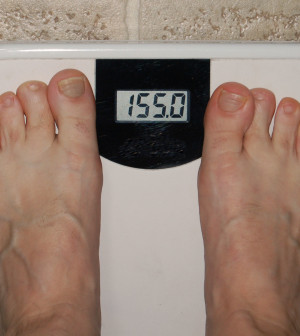- The Best Time of Day to Drink Bone Broth to Maximize Health Benefits
- 8 Ways to Increase Dopamine Naturally
- 7 Best Breads for Maintaining Stable Blood Sugar
- Gelatin vs. Collagen: Which is Best for Skin, Nails, and Joints?
- The Long-Term Effects of Daily Turmeric Supplements on Liver Health
- Could Your Grocery Store Meat Be Causing Recurring UTIs?
- Are You Making This Expensive Thermostat Error This Winter?
- Recognizing the Signs of Hypothyroidism
- 10 Strategies to Overcome Insomnia
- Could Artificial Sweeteners Be Aging the Brain Faster?
Higher Dose of IVF Drug May Be Needed for Obese Women


Obese women undergoing in vitro fertilization (IVF) might need a stronger dose of a certain medication to improve their chances of getting pregnant, new research suggests.
In IVF, sperm is mixed with an egg outside a woman’s body and the resulting embryo is then transferred into the uterus. Harvesting as many eggs as possible helps improve the chances that IVF will be successful.
During egg collection, women are given a medication called GnRH antagonist to prevent ovulation from starting too early and ruining the egg harvest, explained the authors of the study published March 20 in the Journal of Clinical Endocrinology & Metabolism.
“If the GnRH antagonist clears from a woman’s body too quickly, there is a risk that the brain will signal the body to discharge the eggs from the ovaries too early,” Dr. Nanette Santoro, of the University of Colorado at Denver, said in a news release from the Endocrine Society.
“We were surprised to find obese women were more likely to experience this, and it may be one reason why overweight and obese women have a higher rate of unsuccessful IVF cycles than normal-weight women do,” she explained.
Santoro and colleagues gave GnRH antagonist to 10 obese and 10 normal-weight women and monitored them for 14 hours. The drug was cleared from the obese women faster than from the normal-weight women.
The researchers also found that during the monitoring period, half of the obese women had a rebound of a hormone that causes the body to release eggs.
“Our findings indicate obese women may need a different or increased dosing regimen to improve fertility treatment outcomes,” Santoro said. “Given the cost of IVF and stress of infertility, it is important to maximize each woman’s chances of conceiving a child.”
More information
The U.S. National Library of Medicine has more about in vitro fertilization.
Source: HealthDay
Copyright © 2026 HealthDay. All rights reserved.










